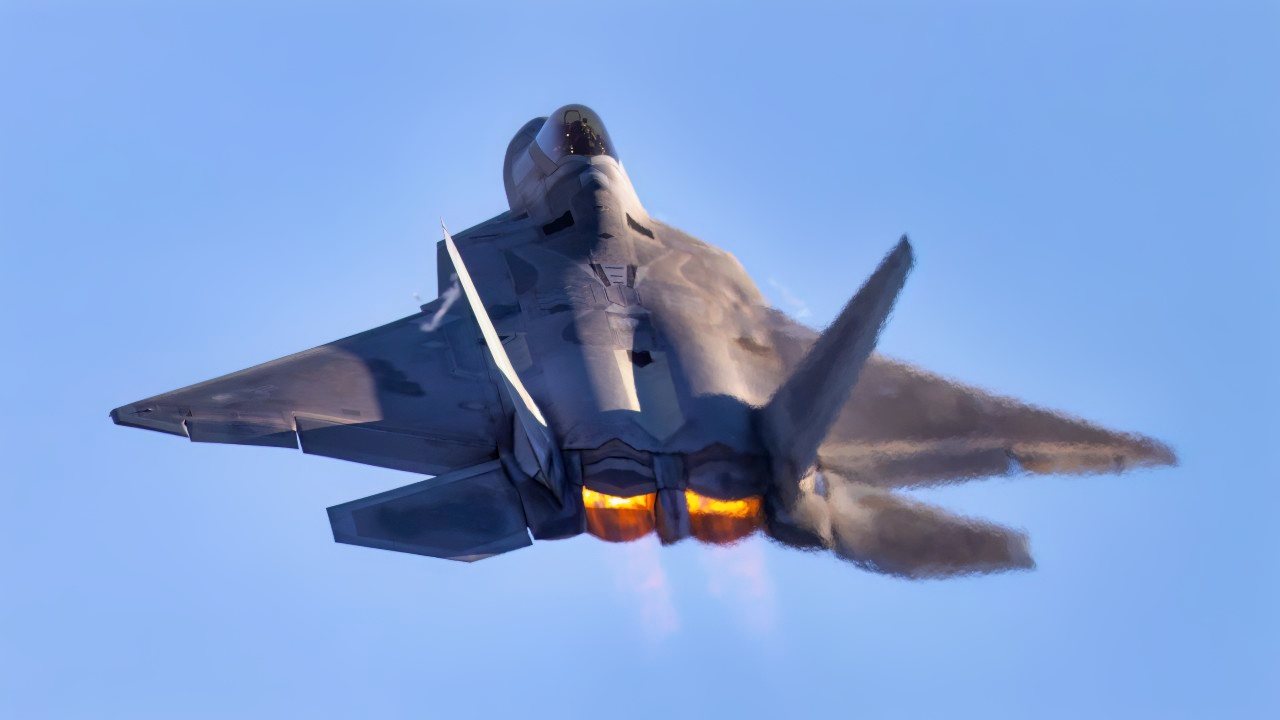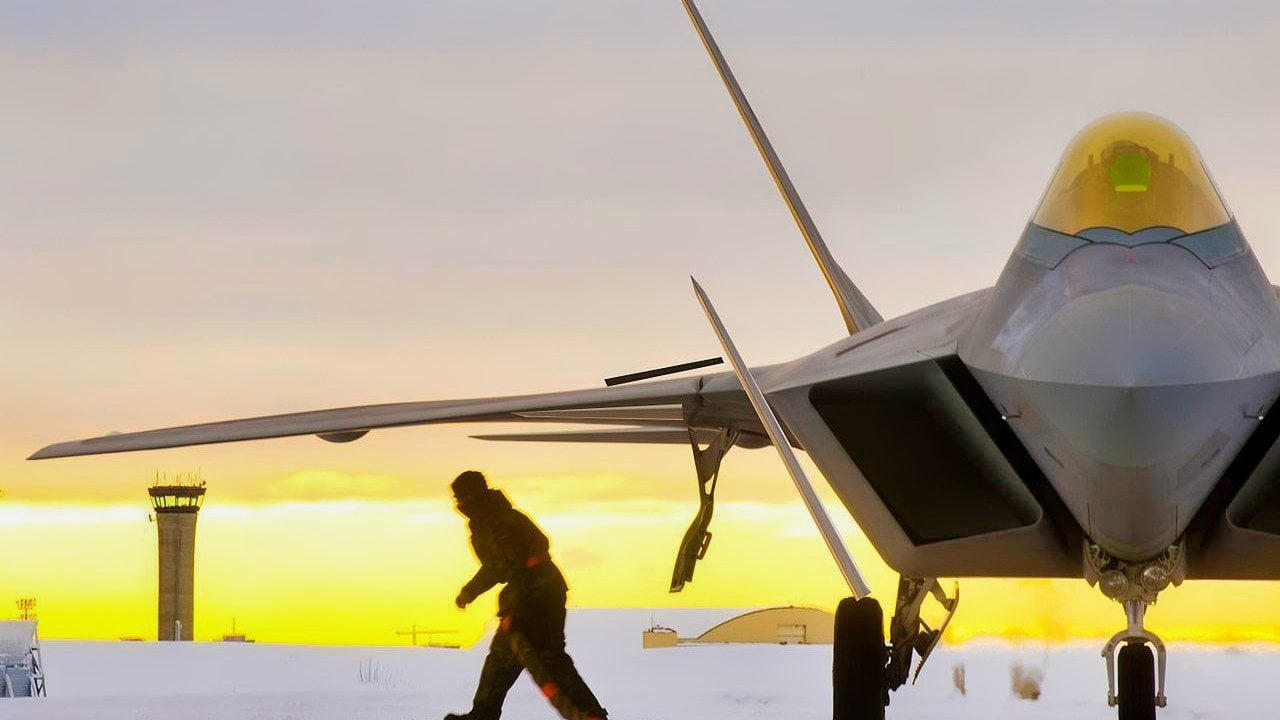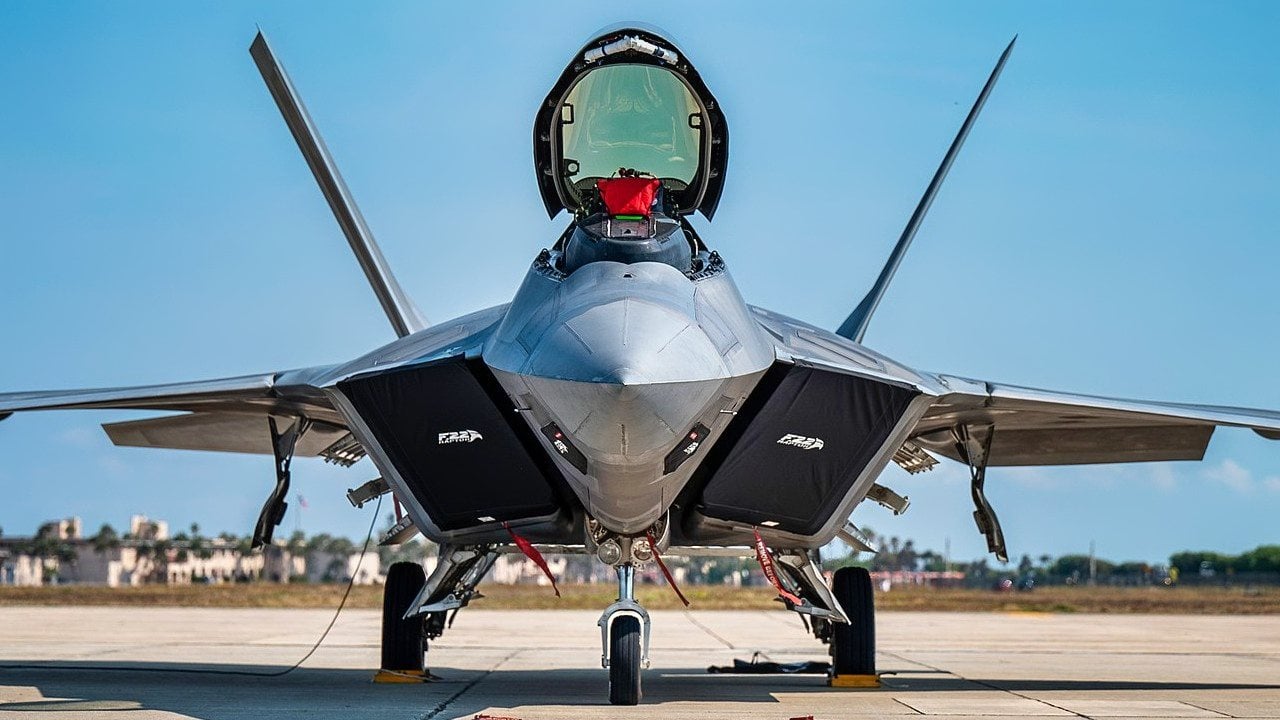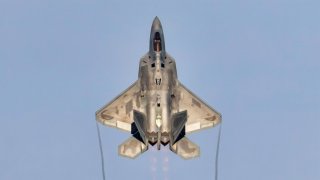Why Only the U.S. Air Force Can Fly the F-22 Raptor Fighter
Amidst speculation, there is no concrete evidence suggesting Israel will procure the American-made F-22 Raptor. The U.S. government has banned the export of this fifth-generation fighter to prevent the transfer of its classified technologies.
Summary and Key Points: Amidst speculation, there is no concrete evidence suggesting Israel will procure the American-made F-22 Raptor. The U.S. government has banned the export of this fifth-generation fighter to prevent the transfer of its classified technologies.

-Despite its unmatched capabilities, including super cruise, supermaneuverability, and stealth technology, Congress explicitly prohibited its sale to any foreign government in the 1990s. The F-22 was designed to keep its advanced technology out of adversaries' hands, notably from China and Russia.
-Although the Raptor remains a highly desired platform, it will exclusively serve the U.S. Air Force, with no plans for sale to other nations, including Israel.
No F-22 Raptors for Sale...Not Even to Israel
The Israel-Hamas war has reinvigorated rumors that Israel could eventually procure the American-made F-22 fighter.
Speculation aside, no concrete evidence suggests this will happen. The U.S. government banned the export of this unique fifth-generation platform in order to prevent the transfer of classified technologies and the knowledge of its unmatched capabilities to other countries, including to American allies like Israel. The legendary Raptor has always remained an exclusive U.S. Air Force project.
The Raptor has never been for sale
Other nations have often asked the Pentagon about purchasing the F-22. The airframe’s unmatched qualities and its status as the first fifth-generation fighter made it an object of desire. But Congress in the 1990s voted to explicitly prohibit its sale. The relevant legislation stated: “None of the funds made available in this Act may be used to approve or license the sale of F-22 advanced tactical fighters to any foreign government.”
The Raptor was designed with classified technology that the U.S. would like to keep away from other countries, fearing that adversaries could get their hands on its stealth technology. China and Russia have an extensive history of stealing American aircraft design plans and would undoubtedly work hard to secure classified intelligence surrounding the F-22.
What makes the F-22 a dominant platform?
The Raptor combines super cruise, supermaneuverability, and stealth technology. Equipped with a tiny radar cross section, the jet can fly undetected at supersonic speeds without the use of afterburners. The Raptor’s cross section is even smaller than that of the newer F-35 Lightning II. The aircraft’s two Pratt & Whitney F110-PW-110 turbofan engines provide a total thrust of around 70,000 pounds, enabling the jet to outmatch any counterpart in a dogfight.
The fifth-generation fighter is equipped with three internal weapons bays that can stock two AIM-9 Sidewinder air-to-air missiles and six AIM-120 AMRAAM radar-guided air-to-air missiles. Additionally, the fighter can carry two GBU-32 JDAMS or eight 250 pound Small Diameter Bombs when flying in close air support or precision strike missions.

Despite the Raptor’s qualities, only a fraction of the planned number of these jets was produced. The platform was initially developed during the Cold War. By the time the Raptor was introduced, the Soviet Union had collapsed and the U.S. was fully occupied in the Middle East. America’s Global War on Terror did not require the F-22’s capabilities, and as a result only about 130 of these jets ever became operational.
The Air Force will retire many of its remaining Raptors in the coming years to make room for additional F-35 Lightning IIs and the Next-Generation Air Dominance program. While some may suggest that the U.S. should sell its remaining Raptors to Israel instead of relegating them to the scrap yard, it is unlikely that an F-22 will ever fly for another nation.

About the Author: Maya Carlin
Maya Carlin, National Security Writer with The National Interest, is an analyst with the Center for Security Policy and a former Anna Sobol Levy Fellow at IDC Herzliya in Israel. She has by-lines in many publications, including The National Interest, Jerusalem Post, and Times of Israel. You can follow her on Twitter: @MayaCarlin.
All images are Creative Commons.


